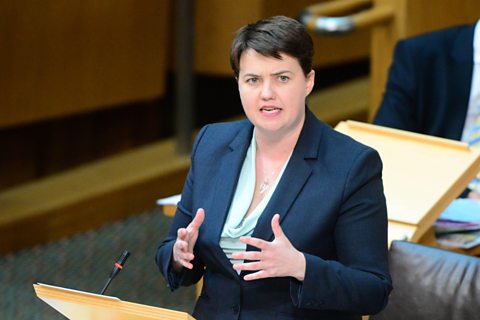What short-term factors affect voting?
Short-term factors that affect voting behaviour are those which are largely confined to one election. To less committed or undecided ('floating voters'), short-term factors can make a difference to the way in which they will vote.
How does the image of the party leader influence voting?
Jeremy Corbyn
Jeremy Corbyn was the leader of the Labour Party for the 2017 and 2019 elections. According to Ipsos Mori, Jeremy Corbyn was the most unpopular opposition in their polling history (45 years). It could be argued that his stance over Brexit was an issue as he attempted to win both Leave and Remain voters within his own party and had an impact on the 2019 election. Lord Ashcroft Polls showed that only 31% of those asked thought Jeremy Corbyn would make the best Prime Minister.
Ruth Davidson

An example of a politician who managed to create a more positive personal image is the former leader of the Scottish Conservatives: Ruth Davidson. She came second in the 2016 Scottish election, and this was attributed to Davidson's personal appeal. She performed well in TV debates during the Scottish Parliament elections and the EU referendum and has a strong following on social media which she uses effectively. Despite stepping down as leader in August 2019, Davidson was the leader of the party in Parliament from August 2020 as Douglas Ross did not have a seat until the 2021 election.
What is single issue voting?
Some voters can be influenced by a single issue. In Scotland someone seeking independence may vote for the Scottish National Party even if they do not support all of the SNP's policies (although there are other Scottish parties which support independence). Alternatively, if someone's main concern is the environment they may choose to vote for the Green Party.
At a UK level, many voters in 2015 switched support to UKIP which opposed the UK's membership of the European Union (EU). To these voters the UK's relationship with the EU was their main concern. In response to the growing support for UKIP, David Cameron felt he had to offer a referendum on the UK's membership of the EU, which ultimately led to the UK voting to leave the EU. This demonstrates the impact that single issue parties can have on political decision making.